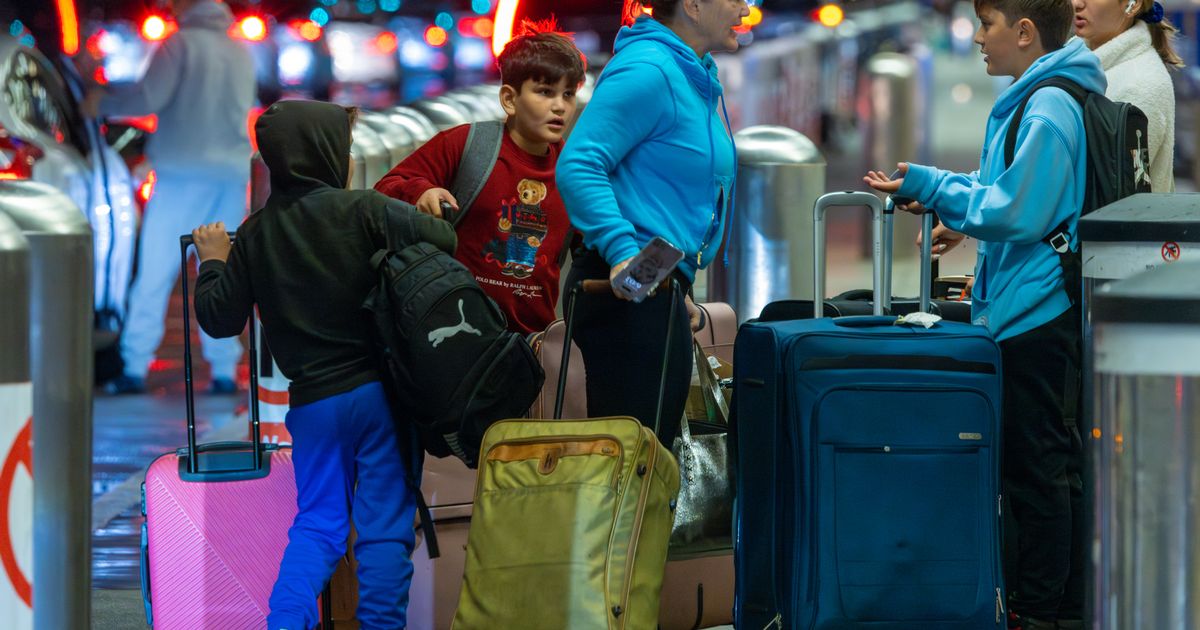Many people take a first aid kit and over the counter painkillers and other meds – but a travel insurance experts said some counties have bans in place Uk holidaymakers could throw their journeys into turmoil by taking some everyday medications in their baggage, experts say(Image: Getty)
Uk holidaymakers could throw their journeys into turmoil by taking some everyday medications in their baggage, experts say(Image: Getty)
A travel expert has said that everyday medications people take on holiday could actually stop you boarding your aircraft – or even face criminal proceedings. Travel insurance expert Kara Gammell from MoneySuperMarket issued an urgent warning to millions of Brits that may need to check their first aid kit before they fly to certain countries, with popular medications such as Sudafed or Benadryl posing potential risks.
She explained that some countries ban medicine like some decongestant which are available over the counter in the UK. Meanwhile some UK holiday hotspots in Europe including Greece and Turkey also restrict painkillers like codeine.
Ms Gammell explains: “When travelling to a different country, many of us want to have that peace of mind that we’ll have access to necessary medications in case we feel unwell away from home.
“However, with countries such as India and the United Arab Emirates having lists of medications that are forbidden to enter the country, it could cause severe disruption to your holiday or even result in penalties, if you don’t check the medicines you’re travelling with before you fly.”
The issue is that many people buy first aid kits, and stock them up with medication which they don’t know for sure they can get abroad – to make sure they don’t run out when they need them. Ms Gammell said: “In countries such as Japan, Mexico and the United Arab Emirates, decongestant tablets that contain Pseudoephedrine (Sudafed, Vicks) or Diphenhydramine (Benadryl, Nytol) are banned.
“Stronger painkillers such as Codeine and Tramadol, are banned in Turkey and various countries across Europe, such as Greece, Germany, Hungary and Slovakia. You would also require a prescription for stronger painkillers in most countries where they are not restricted.
“For help with digestion, Pepto Bismol and Imodium can also be restricted without a prescription and countries including France, Germany and Italy have regulations for these medicines.”
In terms of the steps people should you take to ensure you don’t get caught out and she explained: “Ahead of travel, it’s always advised to check the country’s list of controlled/banned medicines. If you’re unsure, check with the country’s embassy or the GOV UK website if you need an additional license to carry these.
“Medication should always be packed in your hand luggage, and it’s advised to pack slightly more than what’s needed to cover any delays or potential disruption. Some countries have restrictions on the amount you can bring in, usually less than 30 days, so check this before you travel.
“If your medications are prescribed, always bring your prescription with you. If a medication is prescribed, or over-the-counter, keep the label on and the packaging with you – either packaged correctly or folded up with easy access.”
The Foreign Office says medications should always be carried in the aircraft cabin: “You must carry medicine containing a controlled drug with you in your hand luggage when entering or leaving the UK. It may be taken away from you at the border if you cannot prove it was prescribed for you.”
In terms of taking medication out of the UK, officials say: “If you’re taking medicine out of the UK, ask your doctor or pharmacist whether your medicine contains a controlled drug. If it does, check the rules for the country you’re going to with the embassy before you travel. You’ll need to prove it’s yours with either a prescription or letter from your doctor.”
